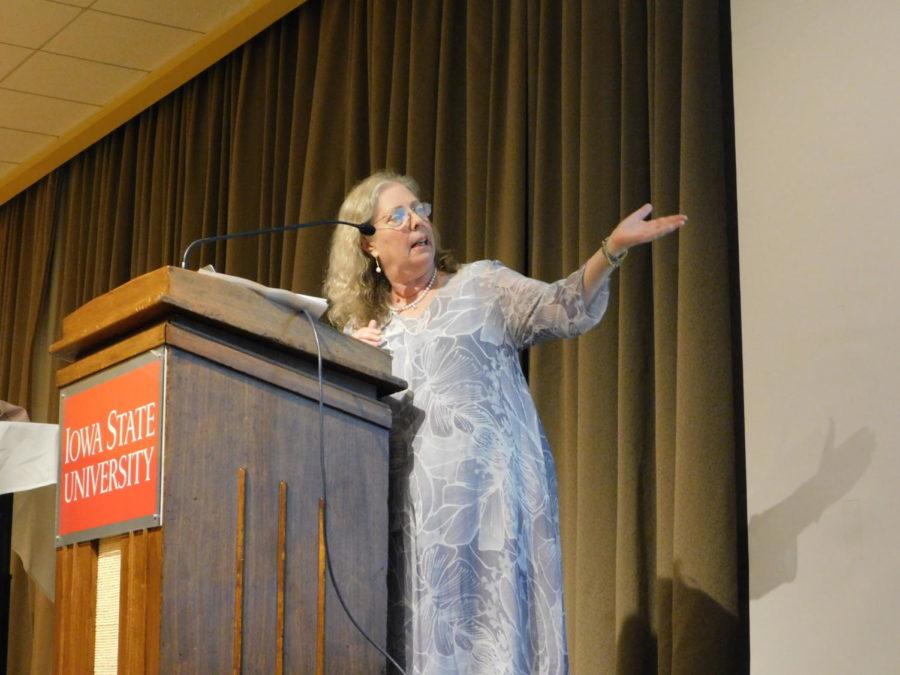Chilean-born U.S immigrant stressed social justice using life experiences
Marjorie Agosín points to a slide on the projector during her lecture on Human Rights in the Sun Room of the Memorial Union on Sept. 17.
September 17, 2018
A Chilean immigrant emphasized creating unity in the United States at a Monday night lecture.
Marjorie Agosín came to Iowa State as a human rights activist, feminist and poet. Agosín presented “Latina Memories: A Chilean Human Rights Perspective.” Speaking on topics of social justice, feminism and remembrance, the author was able to give a perspective on the lives of American immigrants.
Agosín spoke to her experiences as a 15-year-old, Chilean-born United States immigrant.
Drawing from her roots, Agosín spoke of not only finding discrimination because of her immigration status but also because she was raised by Jewish parents.
Agosín’s family fled Chile during the Pinochet takeover and moved to Georgia. She comes from a long line of immigrants, her own grandparents found refugee in her birth country of Chile when they escaped from Ukraine and Austria during the Holocaust.
“What does it mean to always be from somewhere else?” This question, Agosín said, is one American people face today.
Agosín grew up in a home where she spoke Spanish, Hebrew and French. When she came to the United States, she was reluctant to learn English.
“When I immigrated, I lost so much. I was not going to lose my language,” Agosín said.
Agosín went on to write and edit more than 80 books, mostly in her native language.
Life wasn’t always easy for Agosín, especially after she came to Georgia. While in high school, Agosín was bullied for being Jewish, the way her accent came through and the way she looked. She had blonde hair and blue eyes and said, because of this, she never fit right into one group of people.
“Discrimination comes from others inability to understand others,” Agosín said.
A popular subject among the crowd of listeners was today’s current immigration strategy.
“68% of Latina men and women reported discrimination in their daily lives. At the current rate of pay becoming more equitable, Latina women will have to wait 200 years to make the same salaries as white men in the workplace,” according to the Journal of Social Science and Medicine.
Agosín expressed her distrust in the United States for its lack of Spanish printing publishers, bookstores, Spanish speaking doctors or even college presidents.
Agosín also explained the importance of Latino representation in American culture, highlighting important members of society such as Supreme Court Justice Sonia Sotomayor, author Isabel Allende, astronaut Ellen Ochoa and many more.
Latin American culture can be found in the food we eat, the songs we sing and the way we interact with each other, Agosín said.
Agosín’s final message was what Americans can do to protect Latin people in America.
“We need a system that is fair. This is a nation that cares. These are problems that can be solved,” Agosín said.
She told the audience the way they can make a change is by stopping discrimination when they see it, stand up for those with less of a voice, question the people in power and exercise your right to vote.
“I believe that no nation is safe unless everyone is safe. We need to protect each other,” Agosín said. “There is one race, the human race.”
















